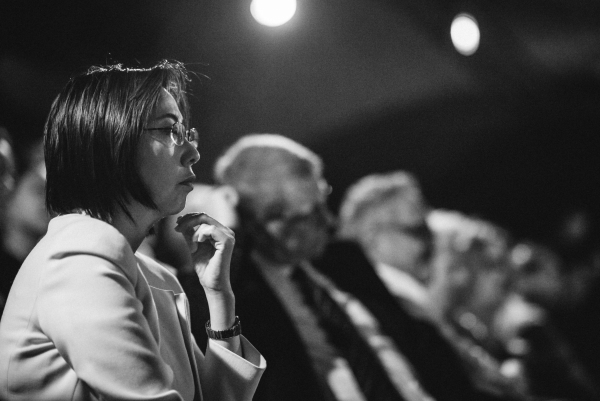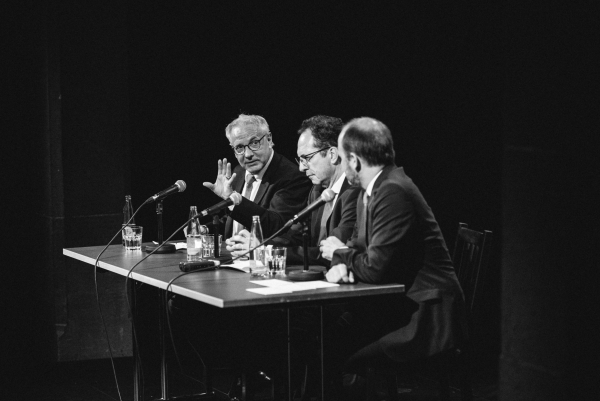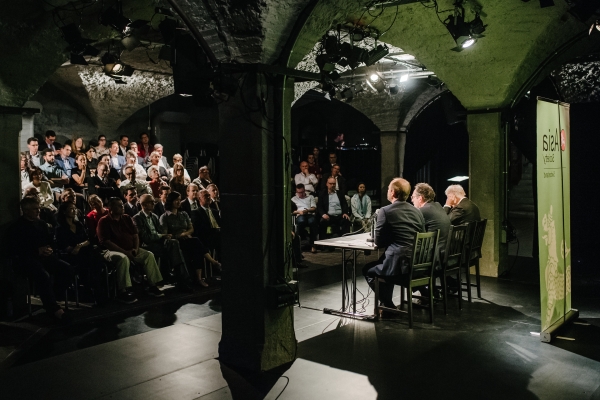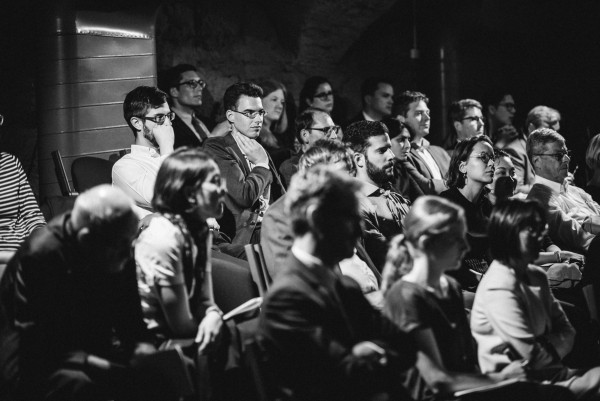As Positive as Possible
Event Recap «Do We Need a New Asia Strategy?»
Partner, competitor, or incompatible – the relations to China are often a variety of things at the same time. The country prompts mixed feelings in European counterparts and shapes a good deal of their Asia strategies and policies.
Switzerland’s relation to China is being described by the Swiss Federal Council as a «relation based on trust». In the history of this relation there are a lot of firsts on the Swiss side: one of the first countries that established diplomatic relations with China in 1950, the first joint venture was founded with Schindler by the end of the 1970s, an annual human rights dialogue is held since 1991, the recognition of China as a market economy was followed by a free trade agreement in 2013, Switzerland was involved early in the Asian Infrastructure Investment Bank (AIIB) in 2015 and one of the very few European countries being present on a head of state-level at the Belt and Road Summit in May of 2017. Ambassador Johannes Matyassy, Assistant State Secretary for Asia-Pacific in the Swiss Federal Department of Foreign Affairs, sees the reason for Switzerland being able to address difficult subjects with China, such as the human rights situation, founded exactly in this diversity of touch points.
The situation for Germany looks rather different: despite of China being Germany’s largest trade partner worldwide, there are a lot of subjects where the two compete or even stand on diametrically opposed positions. «These conflicts must be discussed», says Ambassador Norbert Riedel, current German Ambassador to Switzerland and Liechtenstein, and former official responsible for Asia-Pacific in the German Federal Foreign Office. He evaluates the situation for most EU member states as similar, namely as being comforted standing next to other EU partners when talking to the giant China. China however prefers to deal bilaterally with the individual countries. Commentators call that China’s «Divide & Rule»-strategy, while the EU members start demanding a «One EU» policy from China.
Switzerland is conscious of its privileged position, due to the history of relations with China but also to being a neutral country that is not part of the EU. Johannes Matyassy sees two good consequences of this position that are not going to change any time soon: to show that two very different countries, not only in size but in values and societies, can negotiate at eye level. And to get closer to like-minded peer countries who share common values. «There is no other way», he added, because Switzerland deduces the responsibility from the privileged negotiation position: to represent not only their own interests, but also to uphold values they share with other Western countries.
For Germany the route is not so clear. Norbert Riedel says: «We want to deal with China as positive as possible», because there are also German voices that ask for increased collaboration with China, especially from the industry that sees the massive infrastructure plans of the «Belt and Road Initiative» as a huge opportunity. And Riedel adds, squinting at the Swiss approach, «Who always just says no, can also not take part in the decision-making.»
Listen to the whole conversation here:
Ambassador Dr. Norbert Riedel, current German Ambassador to Switzerland and Liechtenstein, and former official responsible for Asia-Pacific in the German Federal Foreign Office. Looking back at more than 25 years in the Foreign Office, he was posted in Bulgary, Portugal and China as well as in different departments, among them the department of European Union, visa policies, cyber foreign politics. Since 2005, he is an honorary professor at the University of Würzburg.
Ambassador Johannes Matyassy is Assistant State Secretary for Asia-Pacific in the Swiss Federal Department of Foreign Affairs. He looks back on a successful career of 30 years in the Swiss Federal Department of Economic and Foreign Affairs: Starting his diplomatic career in Buenos Aires, he acted in the International Trade-GATT Division, and worked as personal advisor to Federal Councillor Jean-Pascal Delamuraz. After being nominated Ambassador he was CEO of Presence Switzerland, and Ambassador Extraordinary and Plenipotentiary of Switzerland to Argentina.
Mark Dittli, editor-in-chief of the Swiss online magazine Republik, hosted the discussion.





